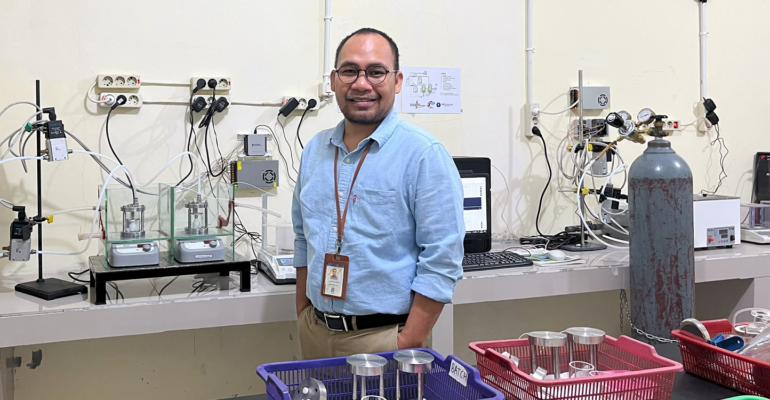IPB University Young Professor Develops Membrane Reactor Technology for Functional Food Ingredient Production

Prof Azis Boing Sitanggang, a young professor at IPB University, is developing automatic membrane reactor technology to produce functional food ingredients. This was revealed during the Press Conference of Professor’s Scientific Oration Pre, which was held online on 22/1.
“Functional food is food that provides health benefits in addition to general nutritional effects. This can support the acceleration of the adoption of science, technology, and art (ipteks) by the national food industry, which leads to an increase in the competitiveness of the national industry,” explained this Permanent Professor of the Faculty of Agricultural Technology, IPB University.
He explained that the membrane reactor technology that has been developed can be a tool in the development of functional food ingredient production processes that provide significant benefits. Although the reactor developed is small in size, it has an automatic system and is able to present reactors in the food industry.
“Membrane technology that can be combined with enzymatic reactions, or enzymatic membrane reactor (EMR), is a unique reactor design because it can facilitate simultaneous catalytic reactions and the separation of reaction products. In addition, this technology is environmentally friendly in producing functional food ingredients,” explained the lecturer of the Department of Food Science and Technology at IPB University.
Prof Azis said that the production of food ingredients in Indonesia is still very low, so many food ingredients are still imported from abroad, even though the production of food ingredients is very important to support the food and beverage industry in Indonesia.
“The technology developed at IPB University is able to support Research and Development (R&D) exploration of natural resources to support the progress and competitiveness of the food and beverage industry nationally,” he said.
He said membrane technology is currently widely adopted for the energy industry and the polymer industry. Especially for the food industry, membrane technology is widely used for consumption in water treatment or the dairy industry.
“However, specifically for functional food ingredients, there is no technology that can be applied; therefore, IPB University, as an educational institution, provides potential ideas to the industry to be developed using membrane technology,” he said.
Prof Azis hopes that this membrane reactor technology can contribute to increasing R&D research on Indonesia’s natural resources in terms of producing functional food ingredients. (dh/Lp) (IAAS/FAE)



















